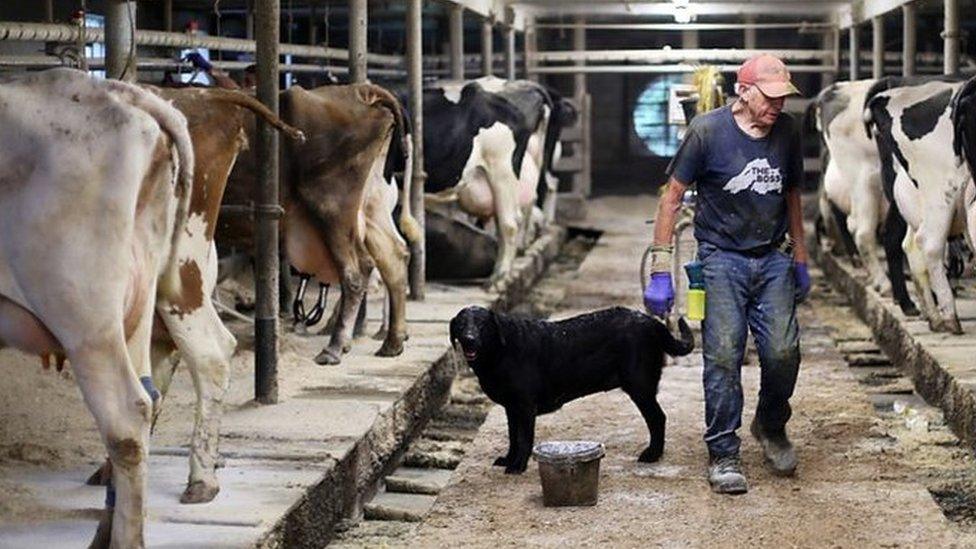Canadian farmers advised to ditch palm oil after 'buttergate' row
- Published
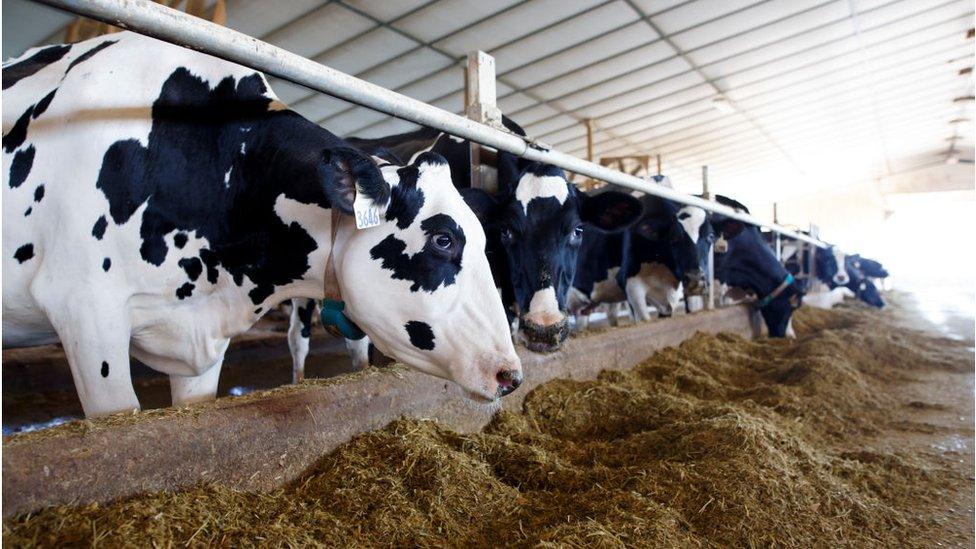
Cows in Canada, like these, are being put on a diet of less palm fat
Canadian farmers have been advised to stop feeding palm oil to cows after foodies claimed local butter had become harder due to the diet supplement.
The Dairy Farmers of Canada group has formed an expert panel to examine the matter and has asked milk producers to temporarily halt the practice.
Experts note many factors, not just fat intake, determine butter consistency.
The Canadian butter controversy comes amid a rise in demand for baking goods during Covid lockdowns.
In a news release, external issued on Thursday, the Dairy Farmers of Canada (DFA) lobbying group asked that while their investigation is ongoing, milk producers "consider alternatives to palm supplements".
"It's just a precautionary [measure] to ensure that consumers maintain confidence in dairy products across Canada," DFA board member Gordon MacBeath told CBC News.
DFA communications director Lucie Boileau told the BBC the working group has not formally met yet, but individual farmers "have already reached out to their animal nutritionist to identify alternatives".
Adding palm oil-based energy supplements to cow feed is a decades-old practice said to increase the milk output of cows and increase the milk's fat content. Little research has been done on the true impact of palm oil in dairy.
With a 12% rise in butter demand last year amid pandemic lockdowns, according to the DFA, many farmers increased their use of palm oil supplements to boost dairy supply.
The so-called "buttergate" row took off earlier this month, when Canadian foodies took to social media to express problems with too-hard butter that would not melt at room temperature.
Agricultural experts have said that butter made from cows with palm oil has a higher melting point and may thus be harder to spread at room temperature.

You may also be interested in
The plight of a dairy farm
Related topics
- Published23 February 2021
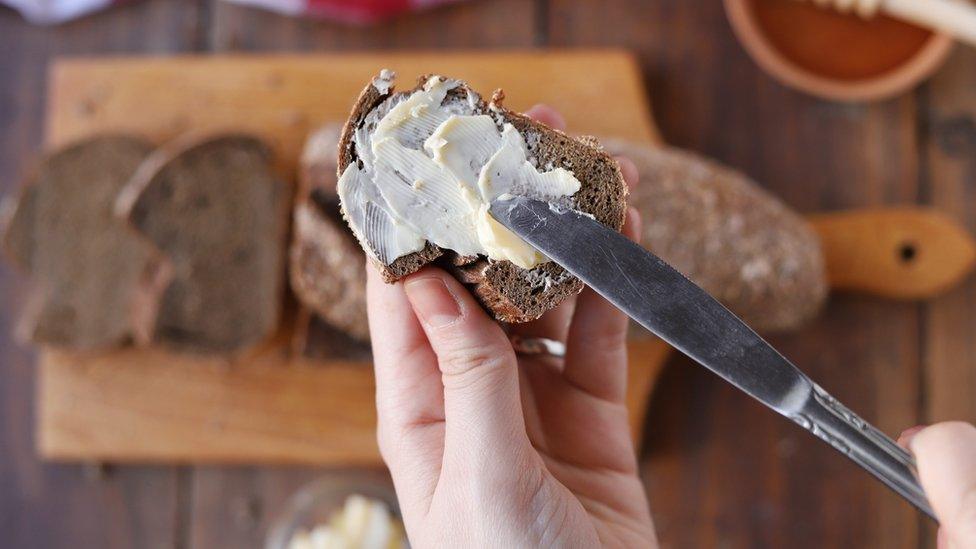
- Published6 April 2020
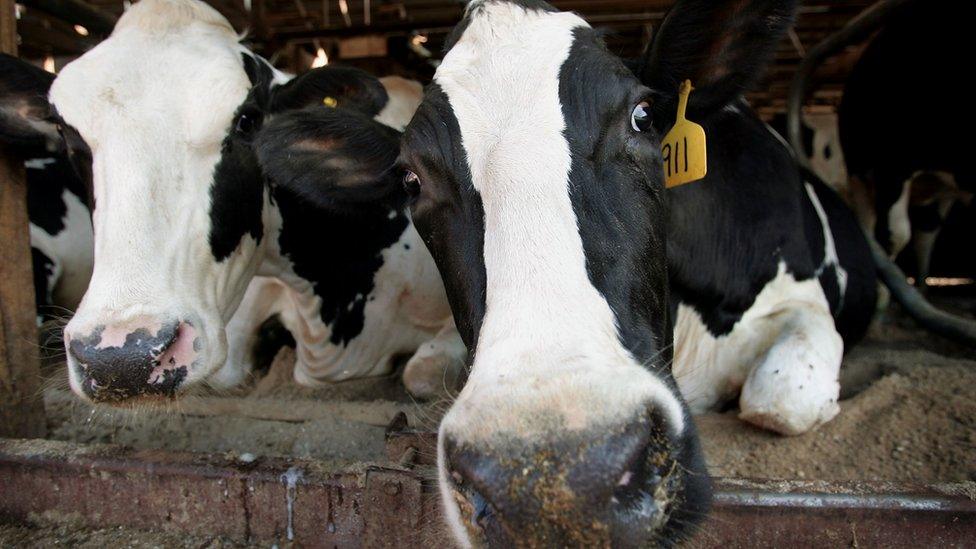
- Published22 January 2019
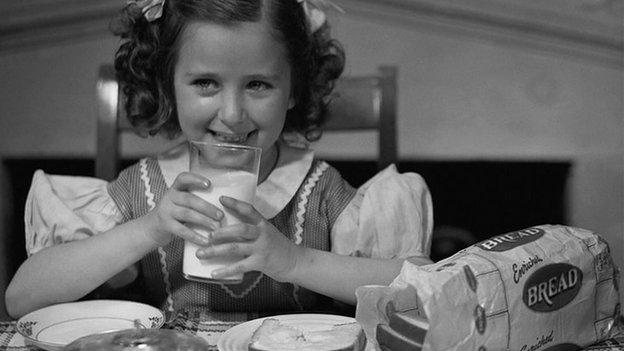
- Published23 July 2019
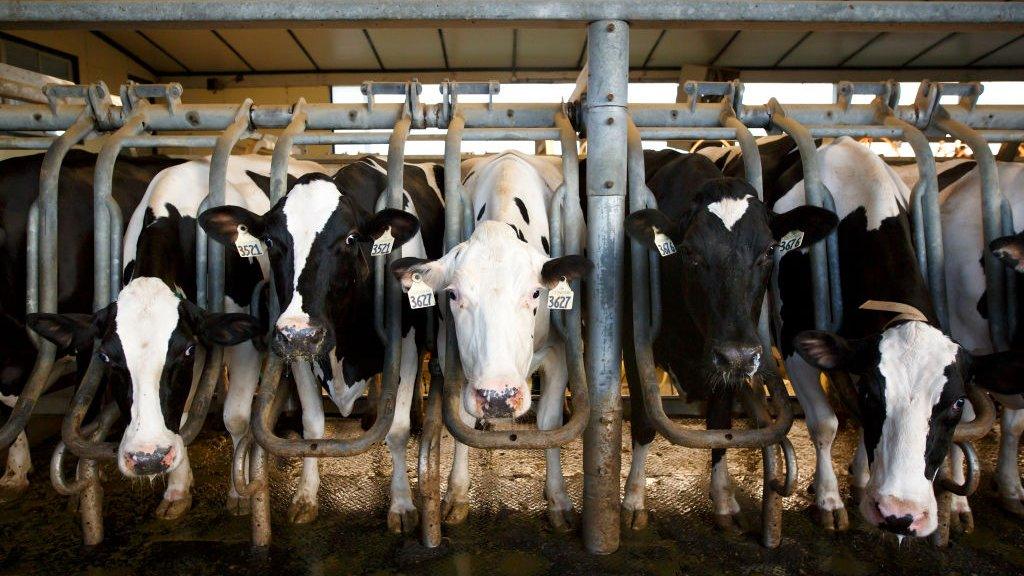
- Published15 August 2019
